CRN Exclusive: VCE President Says No Plan For Dell, Cisco UCS Is The Way To Go
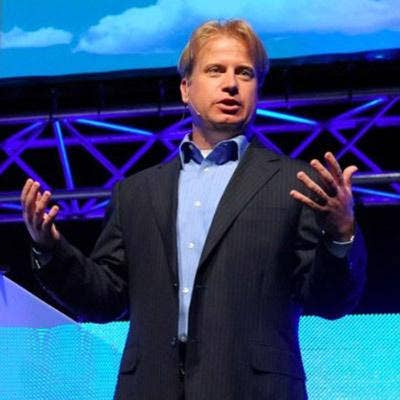
Sakac On The Record
Chad Sakac takes the helm at converged infrastructure powerhouse VCE at a critical time. Its parent company, data storage giant EMC, is preparing to be acquired by Dell. Cisco Systems, which holds about a 10 percent stake in the company, is reportedly developing its own hyper-converged infrastructure appliance with software startup Springpath. Some industry experts expect tighter integration between EMC and VCE, along with Dell ownership, will spell the end of EMC's partnership with Cisco. But Sakac is adamant that's not the case. Customers, he said, want Cisco, and VCE will continue to partner with the networking giant for as long as they do. Sakac spoke with CRN soon after being named president of VCE, now known as the EMC Converged Platforms Unit, and took on these and other topics. Following is an edited excerpt of the conversation.
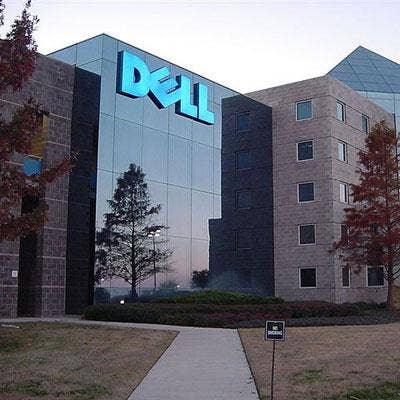
What's the converged story with Dell servers and Dell networking? What's the plan to integrate EMC storage and Dell server and networking for hyper-converged infrastructure?
No. There's no plan. People think of converged and hyper-converged as if they're two things. They're not, actually. They're two different forms of the same thing. One is analogous to a hamburger and one is analogous to a sub. They're both sandwich units. They're different in their parameters; they're different in their scale. Blocks are very good at large to very large scales; they're not good at low scales. Hyper-converged models are able to start smaller and scale horizontally. Are they able to support all data center workloads? No, but many, absolutely. People always go, 'So which one of these two is less expensive?' Well, if a large Vblock costs perhaps $1 million and can run 3,000 VMs, and a hyper-converged appliance costs $50,000 and can run 50 VMs, which one of those is cheaper? The answer is they're two different curves. At certain points in the curve, one is more economical and at other points, the other is more economical. If you have to buy 30 of the appliances to hit the scale of a single block, then the economics blow out and it's almost double the cost. But if you only needed 100 or 200, then clearly the hyper-converged model is more economical.
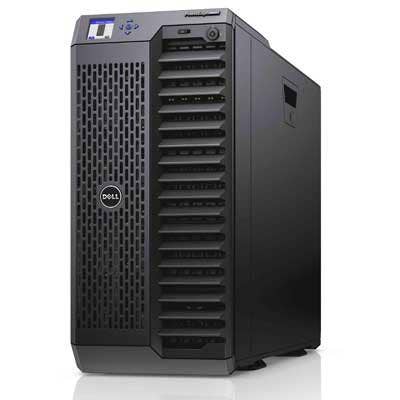
So what is Dell's role? What about Dell servers and networking?
Customers are starting to realize that actually the ingredients are secondary. The ingredients are only relevant in so far as they define the parameters of the system. In the block system architecture, whether it's our block or other blocks, the system architecture that is Vblock, all signals from customers on all fronts is that UCS is way to go, period. When it comes to the networking fabric in blocks and in rack-scale environments, customers are telling us Cisco Nexus hardware is the way to go, period. We would be crazy, and Cisco would be crazy, to inadvertently mess that up. The question then becomes, what about inside hyper-converged, rack-scale systems and hyper-converged appliances? Those use industry-standard servers that are generally rack-mount, modular systems that are designed to start smaller, not necessarily the same scaling parameters. It's a simper design point. In that case, frankly, the Dell FX2 platform is freaking awesome. It hits a different scaling point. It hits a different economic price point. And, frankly, as Dell and EMC potentially come together, you can imagine it would have an incredible impact for us in racks and appliances. What people struggle with is, how can that be mutually compatible with Cisco on blocks? It's simple. Do you agree that there are blocks, racks and appliances? Yep. Do you really care about the ingredients, or do you agree that it's ultimately a system? It's a system. And in the end, don't you want to buy from the partner that does the best job with the portfolio and integrating it? And they say yes. And that's VCE, along with our partner ecosystem. It has to do with having the best offering in each of those markets.
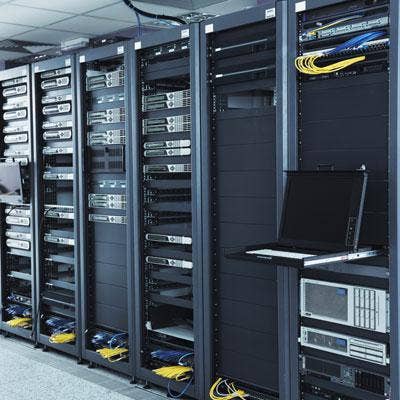
Where do you think the hyper-converged infrastructure market is headed? Vendors seem to like partnering with startups like Nutanix and SimpliVity, but vendors now are developing their own hyper-converged solutions. Which strategy wins?
We always want to pose arguments in binary choices. The hyper-converged market is growing at a 50 [percent to] 70 percent CAGR, converged at a 30 percent CAGR. Converged market is roughly $4 [billion to] $5 billion. Hyper-converged is roughly $1 billion in size. That's a reflection of the customers. Marketing and PR and analysts, everyone is trying to figure out where the puck is going, and really all you have to do is talk to customers to figure out where the puck is going. Ultimately, portfolio wins. We've got the most compelling hyper-converged offerings on the market with VxRack and VSPEX Blue. We have no intent of partnering with Nutanix or SimpliVity. I love, I just love it, when our startup colleagues start the mechanics of going public because it requires an S-1 filing. All of a sudden, a burn rate is evident. You're building programs that might be lucrative for a channel partner in the short term, but it's not going to stay that way forever. It means you've got a giant inventory, but it's not sustainable. This is universally true. Our ability to execute at scale, to be able execute across converged and hyper-converged, to be able to have blocks, racks and appliances, is something VCE can uniquely do. That's long game, and it covers all the bases.
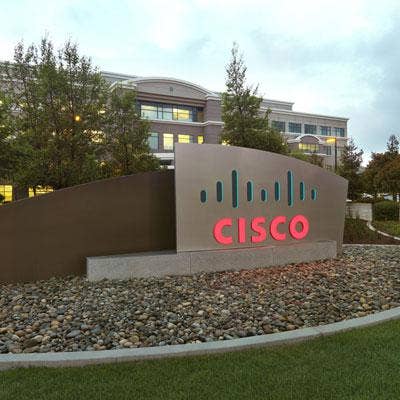
Cisco reportedly is planning to come out with its own hyper-converged infrastructure. Where does that leave VCE?
Our partnership with Cisco is incredible. We're the largest single route to market for Nexus and UCS. Customers say keep going. Keep going down that path, Cisco, keep going down that path with EMC. Customers can be a great guiding light. It's going to be interesting to see. It's an example of where Cisco has partnered and OEMed technology. They've done stuff with SimpliVity, with Whiptail and in the Invicta period. Those have had literally no effect on the relationship with EMC and Cisco and VCE. It's always interesting to see what happens, but we're focused on winning in the market, and winning with Cisco.

What does EMC hope to achieve with the change in leadership at VCE?
We've obviously got a killer team at VCE, killer momentum and clear market leadership in the CI [converged infrastructure] business. So it's a natural question. Sometimes a rocket ship, to achieve the next phase of its growth and acceleration, you need to kick off a second stage. The defining elements of that second stage are several. Number one, our ability to get a ton of leverage with the rest of EMC is huge. Inside the VCE organization, there's roughly 400 customer-facing people. Within the EMC organization, there's roughly 9,000 customer-facing people. We were building a VCE channel program; there's an enormous EMC channel program. CI is the centerpiece of the future of all infrastructure. Therefore, it needs to be at the center of EMC as opposed to at the periphery. The timing was right for me to step in and provide a deep web into the whole fabric of EMC while also making sure the CI team stays very focused on converged infrastructure and solutions. Number two is the growth opportunity we have in the hyper-converged space is enormous. That means moving from from a single product company, a single offering company, in effect, into a portfolio company is commonly a period of transition. The opportunity and the excitement and energy around that is enormous.

Where are you seeing the greatest sales traction?
Huge success. Previously we noted we had a $2-plus billion annualized revenue run rate, end of 2014. I can tell you we've gone a lot further than that. What that highlights at the macro level [is] our growth is actually higher in a given time period than most people's total revenue base. Where are we seeing the most growth? A ton of activity around the Vblock 540. Customers want all-flash data centers. They want scale-out architecture. And they want it in the form of converged infrastructure, so that's good. The second thing that's fascinating is to see VCE's success. It's so successful, but it's still unevenly distributed. The amount of success we have with partners is enormous. I had a call with one partner who did $100 million of VCE revenue last year. One partner. There are other partners who have done nothing, zero. In the Americas, in the central part of the U.S., huge success last year. The year before, it was huge success in the South. Europe West, if you imagine a map with a bunch of LEDs in red, yellow and green, Europe West went bam, green. But it's still very lumpy huge swaths of the world in the dark ages, and channel partners that haven't seen the light. That opportunity, if we just turn it on, go red to yellow, and yellow to green, this is a $5 billion business.

What kind of sales incentives and programs are you putting in place for VARs?
It's going to be a really exciting year for our partners. It's been an interesting week for me. Twitter basically just blew up for me Wednesday and Thursday. I heard from a lot of old friends, friends from partners around the world, and they are pumped and energized. They know that open, transparency and ease of doing business is really important. They can be assured I know how important they are to our business. Specifically, number one, we are going to very rapidly make it easier to transact with VCE. This week, the whole new system for how we quote and configure with our partners at EMC as a whole is going live. It's the exact same system and process for EMC employees as it is for partners. There's no longer an EMC view of the world and a partner view of the world. Full disclosure, simple and easy transactions, a modern way of quoting and configuring. It's easier to win together. The incentive programs for Vblocks, for all go-to-markets historically, have been somewhat complex. And it's also complex for VSPEX Blue, too. How much a customer would look to a solution for its value and pay, and ultimately pay, and what compensation program was on the front end and back end was really complex. It had very little to do with what customers would pay and what they saw. It would decompose it, in effect. It would decompose it into the EMC component, the VMware component. We're dramatically simplifying that. Internally, and our partner go-to-market are dramatically simplified. Rebates and incentives are geared around total solution value. In mid-February, there will be insanely exciting things to see in terms of [an] expanding product portfolio.
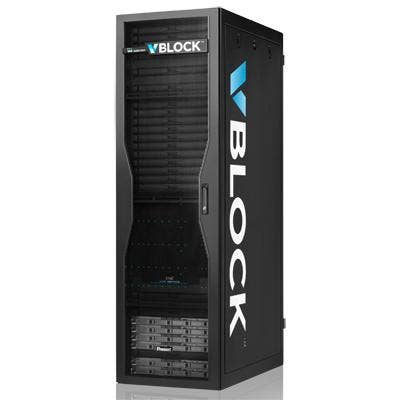
The program you came out with in 2014 … doing more for VSPEX, Vblock, etc. Is that still in place? Are there any joint Cisco-EMC channel programs left? What's the new call to action for partners?
There's absolutely an incentive for partners that do more with EMC in total, and we've actually integrated the EMC program with the VCE program. The EMC program as a whole creates more incentives for partners to do more with EMC. It's a simpler program because you no longer have to think about an EMC program and a VCE program. They're one thing. When you have tech and innovation that's compelling, and squarely in a space that customers want and need, and you make things easy to transact, and [have] good incentives for partners, all you need to do is get out of the way. Cisco is still completely in the boat and rowing with us. I had a bunch of calls with Cisco over the last several days. I believe there's an extra incentive for partners if they are both Cisco and EMC partners.
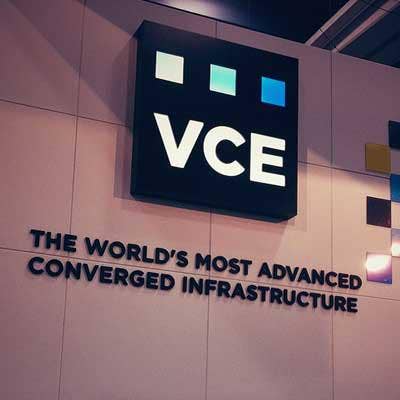
What do you need from VCE partners in order to meet your goals for the company?
Invest the same trust in us that I invest in them. I know the partners are the key to success. I know the partners are the people the customers look to and trust. My commitment is absolute, to be transparent, to make our systems, training [and] content road map available exactly the same way to partners as they are to our employees, period. My commitment is to make our business to them the most lucrative in the market, period. My commitment to them is to deliver the strongest portfolio that can cover blocks, racks and appliances. That's my commitment to them, and I'd say return that trust and it's going to be a very, very fun experience. And, frankly, I'm a very easy dude to reach. Shoot me a DM on Twitter. Talk to me, give me feedback, communicate. Let's stay close.